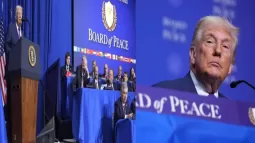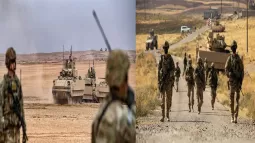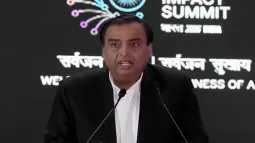
Enhanced Monitoring After Kashmir Violence
Following the recent terrorist attack on visitors at Pahalgam, Jammu and Kashmir, intelligence channels have reported heightened security cover on Hafiz Saeed, the leader of Lashkar-e-Taiba. Reports by national media outlets reveal a heightened security watch on Saeed's housing facility in Lahore, where drone surveillance and high coverage area watch have been stationed. This move enhances the suspicion that Saeed could be involved in the planning or financing of the attack, which was carried out by TRF-linked gunmen.
High-Security Measures Deployed in Lahore
Hafiz Saeed is now living in a crowded residential area in Lahore. The latest reports affirm that his residence is now being kept under round-the-clock surveillance by the Pakistan Army, Inter-Services Intelligence (ISI), and Lashkar-e-Taiba agents. The security has been beefed up reportedly four times. Round-the-clock aerial monitoring with military-grade drones is being done. A high-tech CCTV network has also been put in place, monitoring all directions within a four-kilometer area.
Security agencies have cordoned off the area, disallowing civilians from entering. Non-military UAVs have also been barred in the region to prevent unauthorized spying. These increased measures have come just after the Pahalgam attack, raising eyebrows over Saeed's involvement. While the attack was ostensibly carried out by TRF militants, Indian intelligence is convinced that Saeed may be the mastermind of the operation.
Pattern of Protection for High-Profile Militants
In contrast to earlier trends wherein masterminds like Osama bin Laden and Masood Azhar used remote or hilltop hideouts, Hafiz Saeed still makes his home in a residential area. Bin Laden, for instance, had been in hiding in Abbottabad out of sight of the general populace, whereas Masood Azhar had conducted activities from remote areas of Bahawalpur. By way of contrast, Saeed's presence in a crowded location seems to act as a deterrent to targeted attacks that could pose risks to civilian lives.
This approach proposes a deliberate step by Pakistani officials to complicate direct action against Saeed. The civilian environment not only makes it difficult for military operations but also enables the Pakistani state to exercise plausible deniability regarding sheltering him. The most recent intelligence estimates point to Pakistan's increased protective stance for Saeed as being related to fears of potential retaliatory measures.













